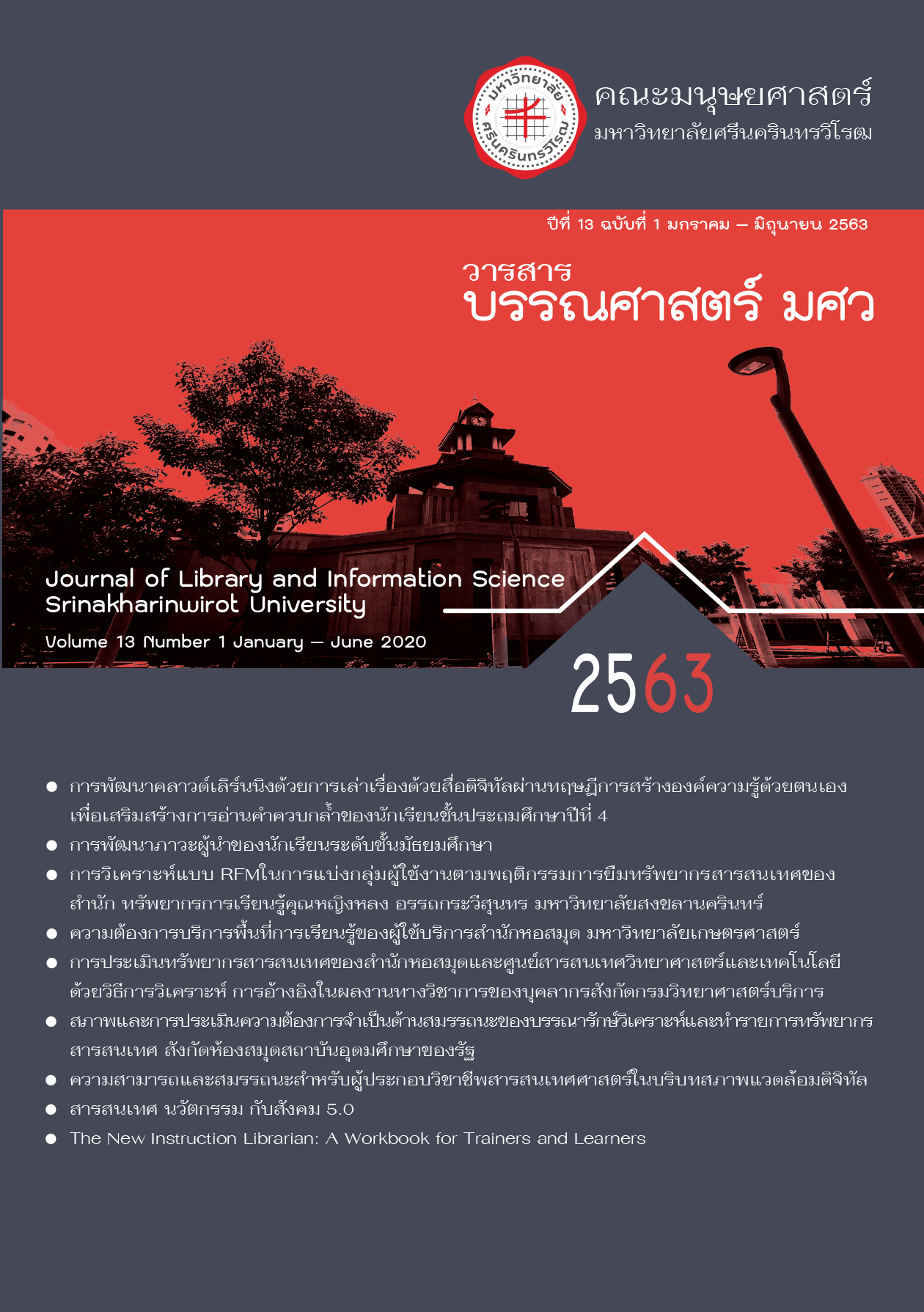A Development of Cloud Learning Through Digital Storytelling on Constructionism Theory to Enhanced Thai Word Cluster for Grade 4 Students
DOI:
https://doi.org/10.14456/jlis.2020.1Keywords:
Cloud Learning, Digital Storytelling, Constructionism TheoryAbstract
The purposes of this research were 1) to find the efficiency validation of cloud learning through digital storytelling on constructionism to enhance Thai word cluster for Elementary School grade 4 students and 2) to compare the learning achievement of students learning by writing stories using digital media through constructionism to enhance reading. Prior to the Elementary School grade 4th grade during pre-post-study, the sample consisted of 2 groups of students in Khlong Bang Kaew School, consisting of2 groups, 30 students, totaling 60 persons. The first research tool. 1) Cloud learning through digital storytelling through constructionism Elementary School grade 4 students, 2) the content quality and technology assessment form, and 3) the statistical achievement test for data analysis. The data were analyzed to mean, standard deviation, consistency index, difficulty, classification, reliability coefficient of reliability, reliability of ependent t - test. The results showed that 1) Cloud learning by storytelling with digital media through self-knowledge creation theory to strengthen the reading of Elementary School grade 4 students by looking for quality from 3 experts in content and multimedia technology, with a mean of content well at average. Multimedia technology is at a good level. The efficiency is 84.66 / 81.50 which meets the criteria and 2) the learning achievement of students learning with cloud learning by storytelling with digital media through constructionism to strengthen the reading of Grade 4 after studying higher than before studying. Statistical significance at the level of .05.
Downloads
Published
Issue
Section
License
Copyright Notice
Copyright of articles in the journal of Journal of Library and Information Science Srinakharinwirot University is the author's and the Faculty of Humanities, Srinakharinwirot University. All articles submitted for publication will be assessed by a group of distinguished reviewers. The Faculty of Humanities, Srinakharinwirot University and the editorial board claim no responsibility for the contents or views expressed by the authors of Individual articles. Copying is allowed freely, provided acknowledgement is made thereof, and within the scope of copyright law.



